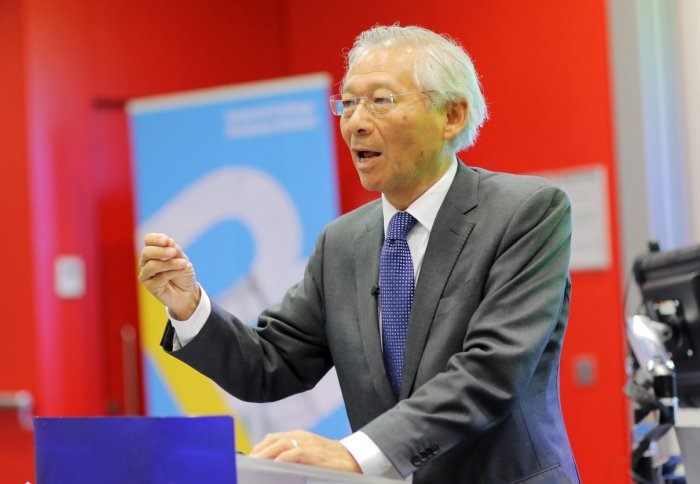Risk taking and creativity are boosting China's economy says Imperial academic

Chinese industry is becoming more innovative, thanks to their flexibility in meeting customer needs and a trial and error approach to development.
This was the case put forward by Professor George Yip, Associate Dean of Executive Programmes at Imperial College Business School, at a talk he gave last night at Imperial College Business School.
The event was held to celebrate the publication of a new book entitled ‘China’s Next Strategic Advantage’, which is co-authored by Professor Yip and Dr Bruce McKern from the China Europe International Business School, who also spoke at the launch.
The Chinese aren’t afraid of making mistakes and their willingness to take risks is what’s driving many new initiatives.
– Professor George Yip
Professor Yip outlined the factors that are driving the rapid surge in Chinese innovation. He spoke about how Chinese businesses are moving away from a position of copying Western product ideas to creating new products that meet the demands of a large domestic population, which is becoming wealthier. He also discussed the Chinese Government’s central role in fostering innovation, citing the example of their role in electrifying the car market and creating the necessary infrastructure to make it happen.
“The Chinese aren’t afraid of making mistakes and their willingness to take risks is what’s driving many new initiatives,” said Professor Yip. “Only China’s powerful, centralised government can solve the chicken-and-egg problem of providing charging stations nationwide to persuade drivers to buy electric vehicles. The country has already started to build such a charging network.”
Professor Yip also outlined the ten ways in which Chinese companies innovate differently from the West. In one example he talked about a product being developed by the appliance company TCL, which manufactures a dual screen television. The unique selling point of the product is that it enables two people to watch different programmes full screen on the same television, which caters for the viewing styles of many Chinese consumers.
However, this approach required TCL to carry out intensive research and development that involved a trial and error approach, before the product was perfected.
Professor Yip said: “Making products that are ‘good enough’, but not sophisticated, has long been the approach across most Chinese manufacturers. However, Chinese consumers understand this trial and error approach to innovation and are more forgiving of failures than customers in the West.”
The Chinese are also good at getting inside the mindset of their customers abroad said Professor Yip. He gave the example of the Chinese manufacturer Haier, which has recently produced a refrigerator with three different temperature-compartments. The third compartment being at an intermediate temperature to store ice cream so that it can be eaten straight from the fridge, without the need to defrost. This feature directly appeals to American consumers who do not like to wait for their food to thaw.
The talk, which was followed by a book signing, was well attended by Imperial staff, students, media and the public gathered for the talk and book launch. Reflecting on the talk afterwards, Professor Yip said: “A lot of people are fascinated by China’s rapid rise to become a world-leading innovator and it was great to engage in discussion with such a dynamic audience.”
Article text (excluding photos or graphics) © Imperial College London.
Photos and graphics subject to third party copyright used with permission or © Imperial College London.
Reporter
Laura Singleton
Communications Division